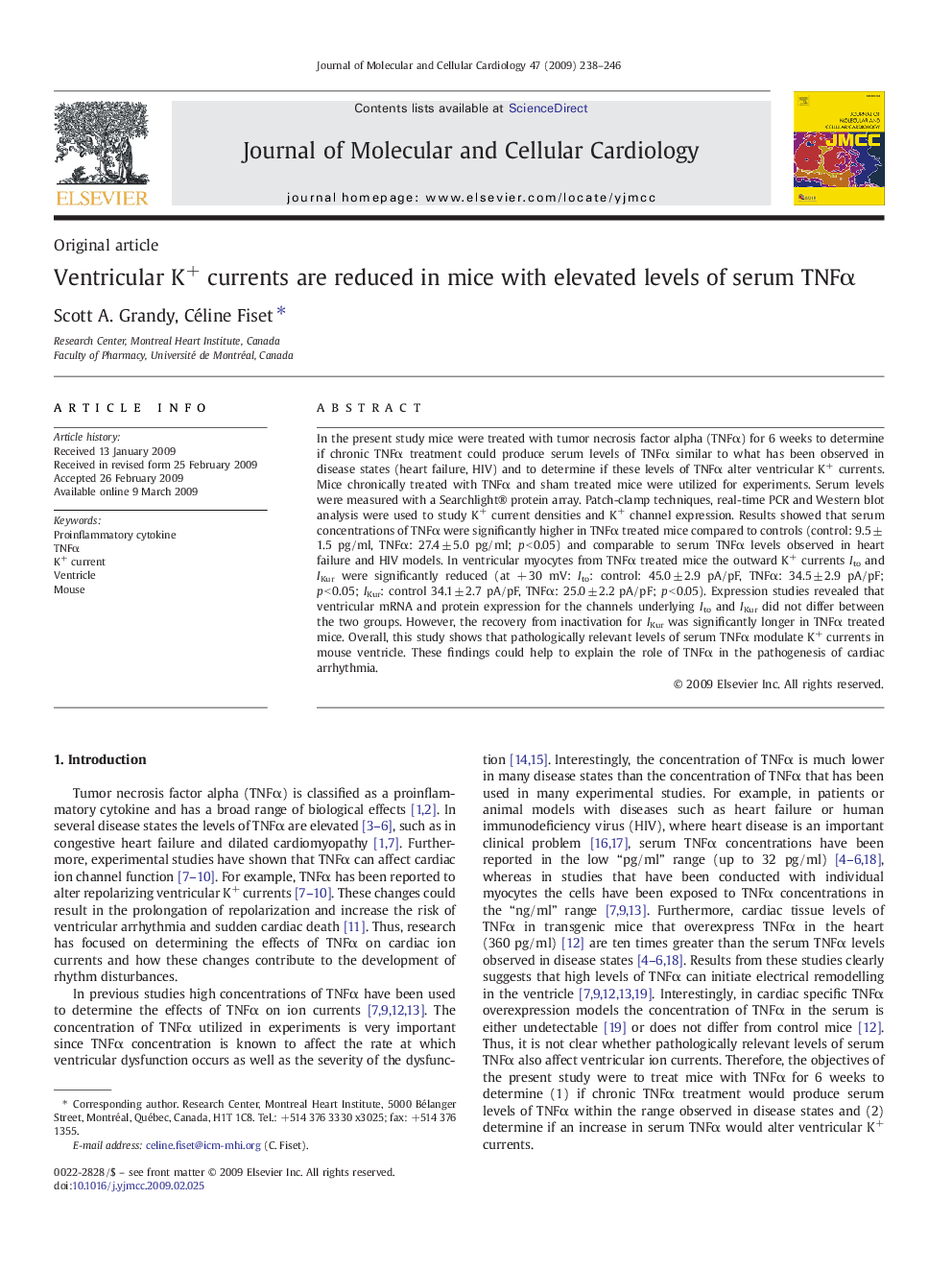| Article ID | Journal | Published Year | Pages | File Type |
|---|---|---|---|---|
| 2190988 | Journal of Molecular and Cellular Cardiology | 2009 | 9 Pages |
In the present study mice were treated with tumor necrosis factor alpha (TNFα) for 6 weeks to determine if chronic TNFα treatment could produce serum levels of TNFα similar to what has been observed in disease states (heart failure, HIV) and to determine if these levels of TNFα alter ventricular K+ currents. Mice chronically treated with TNFα and sham treated mice were utilized for experiments. Serum levels were measured with a Searchlight® protein array. Patch-clamp techniques, real-time PCR and Western blot analysis were used to study K+ current densities and K+ channel expression. Results showed that serum concentrations of TNFα were significantly higher in TNFα treated mice compared to controls (control: 9.5 ± 1.5 pg/ml, TNFα: 27.4 ± 5.0 pg/ml; p < 0.05) and comparable to serum TNFα levels observed in heart failure and HIV models. In ventricular myocytes from TNFα treated mice the outward K+ currents Ito and IKur were significantly reduced (at + 30 mV: Ito: control: 45.0 ± 2.9 pA/pF, TNFα: 34.5 ± 2.9 pA/pF; p < 0.05; IKur: control 34.1 ± 2.7 pA/pF, TNFα: 25.0 ± 2.2 pA/pF; p < 0.05). Expression studies revealed that ventricular mRNA and protein expression for the channels underlying Ito and IKur did not differ between the two groups. However, the recovery from inactivation for IKur was significantly longer in TNFα treated mice. Overall, this study shows that pathologically relevant levels of serum TNFα modulate K+ currents in mouse ventricle. These findings could help to explain the role of TNFα in the pathogenesis of cardiac arrhythmia.
